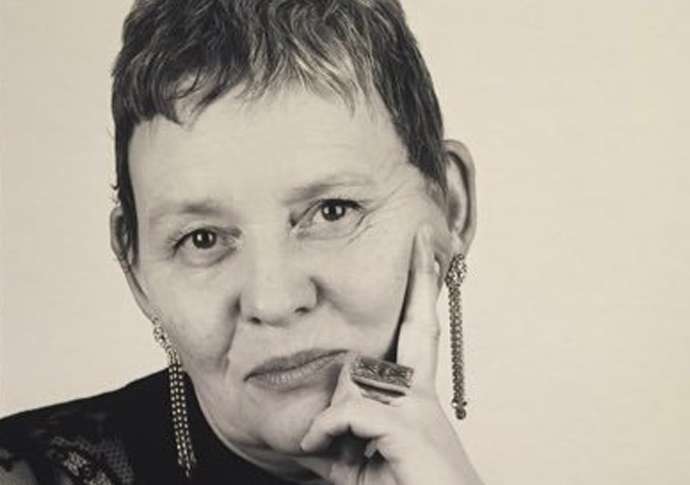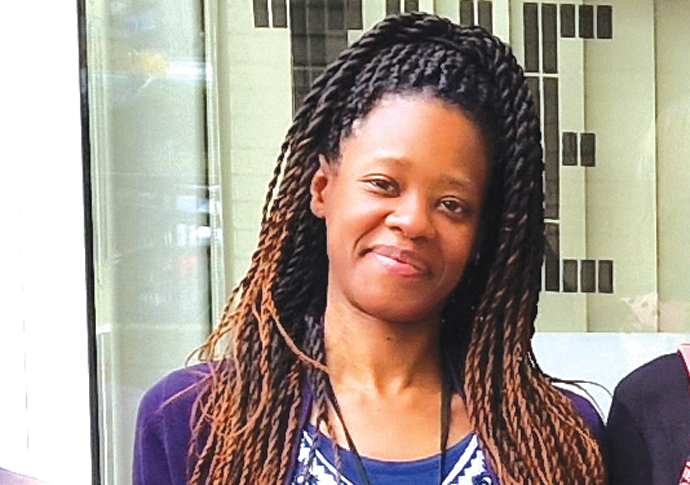Fears cost of living crisis will see women on the streets
Charity chief executive: ‘Women are more financially vulnerable because of the gender pay gap’
Friday, 10th March 2023 — By Izzy Rowley

Vivienne Hayes
WOMEN are being pushed over the edge by the cost of living crisis and now make up the majority of food bank attendees in Islington, it was warned this week.
In the same week as International Women’s Day, there have been predictions that the scale of hardship is now biting so hard that there would be more women finding themselves homeless.
Vivienne Hayes, chief executive of the Women’s Resource Centre in North Road, Holloway, says that the financial barriers women face means the cost of living crisis has pushed them into desolation.
“There’s no doubt that the cost of living crisis has disproportionately impacted women, then if you think about black and minority women, and disabled women – it’s like a triple whammy for them” she said.
“Women are more financially vulnerable because of the gender pay gap. Women are overrepresented in lowest paid work: caring, catering, zero-hours contracts.
“Most women cannot afford to get a job because they can’t pay the childcare costs, particularly in London, where the costs are just ridiculous.
“Women are already not in really high-paying sectors and struggling just with making ends meet. The additional financial crisis means that women are just pushed over the edge, where previously they were just about scraping by.”
She added: “I’m so worried that we’ll have more women on the streets, in abusive relationships because they either depend on their abuser financially or their abuser is in financial control of them, sofa surfing and being coerced into giving sex to landlords.
“Without political will and concerted effort to address this, I don’t know how it’s going to shift. We’ve got this circle of barriers across all aspects of women’s lives, and we need serious action for them to be removed.”

Zena Sherman
Zena Sherman, 46, has been working at the Light Project in Islington since 2019, and began running the project’s food bank in 2019. “We definitely see more women attending the food bank,” she said. “Most of them say that because they’re single they feel they have to do everything – they have to deal with finances of the household, childcare, everything. Some of them don’t have family around, so it’s all falling on their shoulders.”
She added: “Their own wellbeing suffers when they take on all of these roles.
“Sometimes, these women also have health issues and they don’t have time to go to the GP, and, anyway, their health is not their priority. They wear so many hats, so they don’t look after themselves.
“It has to be a special occasion for them to take time out for themselves, like a birthday or something, otherwise they feel guilty for it.”
Ms Hayes said that the women’s services sector is experiencing a 300 per cent increase in demand.
“We are the emergency service for women in need and desperation, but we don’t get the funding to help them all. It’s like the perfect storm,” she said.
Women are statistically more likely to take on unpaid carer roles – whether that be childcare, or caring for a sick or disabled relative.
“Women are the backbone of families, communities, and societies – why aren’t we compensated for the unpaid labour that we do? Women look after the elderly, infirm, disabled people in their families, women do that overwhelmingly. Women’s unpaid labour is worth millions, if not billions, to the state. It’s high time that we have our rights, we’re not asking for special treatment. Women need levelling up, to use the government slogan,” she said.
Ms Hayes added that the poverty women face isn’t isolated to them, but has knock-on effects on their whole families.
“A child is not poor because they’re poor, they’re poor because their parents are poor and a lot of families are single parent families, and 90 per cent of those are single mothers. If you invest in women, you invest in the family.”
Help on Your Doorstep, a charity that helps residents in poverty, has found that two-thirds of the residents in Islington they helped with food and fuel costs over the past two years were women.